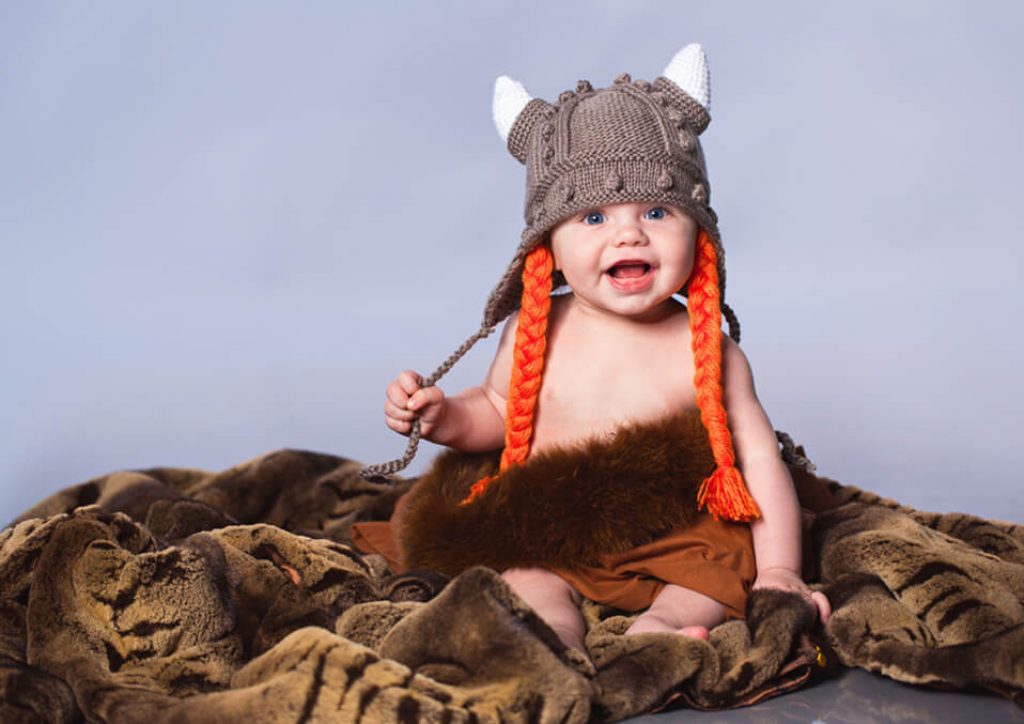Blog
Famous Viking Names
These days Viking names are gaining international popularity. That’s because the North names often associated with warriors and goddesses, so many parents believe their children will adopt some features from the Scandinavians. If you are still confused about the choice of the name, Viking style will be an irreplaceable helper! Keep reading and find out some popular Viking names, and probably you will find one suitable for yourself.
What are the most popular Viking names?
Viking’s tradition of name-giving was always connected with naming after a God, relative, or sibling. Popular Viking names are devoted to an authentic Norse heritage. Favorite Viking names for boys are Rune, Bjorn, Leif, Magnus, and girl names include Freya, Randi, and Helga.
Viking male names
A majority of Viking boy names are often associated with strength, bravery, and strong spirit. Besides, Viking warrior names are also worth mention. For example, Cuyler means an archer, Brynjar means armored warrior, Hjalmar personifies a fighter wearing a helmet, Viggo is a battle and Einar means one who is fighting alone. Yet, most of the names are taken straight from Norse mythology. The following list of Viking names male will help you to choose one suitable.
1) Harold – commonly used form of this name is Harry which means «lord and ruler». The first King of Norway was Harald Fairhair, since then Harold is a popular boy name in the Nordic countries.
2) Knut – Several royal families have used this name for their posterity, for instance, the prince of Denmark; Knut means a knot.
3) Magnus – It originates from the word «great»; due to its greatness, many Scandinavian kings were named Magnus.
4) Tor – it personifies heroic god of thunder and storms and means real mightiness; be sure someone who takes this name will be confident and brave.
5) Loki – A tricky god in Norse mythology was named Loki and he both helped other gods or fought against them; keep in mind that this Viking name does not always mean some good features.
6) Ivar – An original translation indicates Ivar as an archer – a warrior with a bow; a name has an interesting history due to the famous personalities in the Norse culture.
Viking female names
Most Viking girl names originate from the names of Norse goddesses and some of them are rare and old-fashion. Here is a list of the most common women’s Viking names from the epoch.
1) Freya – in translation means a lady and devoted to one of the most famous goddesses of beauty, love, and death in Norse mythology. Today, an amazing statue of goddess Freya is situated in the capital of Sweden.
2) Hilda – common women’s Viking name which means «battle».
3) Saga – this unique name was only found in the Scandinavian countries and is associated with the Norse goddess of poetry and history.
4) Astrid – the name is commonly used on the North and represented Godly Strength; it is often easily recognizable.
5) Ingrid – this Norse name is still popular around the world, not only in the Scandinavian countries; the meaning is an adorable goddess.
6) Sigrid – another Viking name that is reaching its international popularity; translated from Old Norse and usually associated with victory and woman’s beauty.
7) Solveig – a name considered to be the most beautiful Scandinavian girl name; Solveig means strength of the sun or daughter of the sun, although the original translation is «strong house».
Modern Viking names
Numerous modern names are inspired by Viking’s folklore, religion, and culture. For instance, such names as Frode, Hilda, and Erik are commonly used in Norway, at the same time Sigrid and Tove are usually given in Denmark.
Besides, due to modern popular culture, many Viking names are taken from the films and series and just gain their popularity now. It’s included Ivar, Magnus, Erik, Helga, Sigurd, and so on. A majority of these names are directly connected with a Viking’s deity, gods, and powers.
Viking last names
Vikings didn’t widely use last names. They often addressed someone as to son or daughter. That’s why many surnames ending is son or dottir, which means son and daughter of someone.
Still, many English surnames have their roots in the Norse language due to the Origins of English Surnames and A Dictionary of English and Welsh Surnames. It includes such last names as Copsey, Gamble, Goodman, Grave, Algar, Dowsing, etc. Just like Viking names, the surnames are inspired by Norse beliefs and personal features (such as courage).
In addition, Viking clan names were often named after their ancestor with the ending –ung or –ing. Such clans were the main force of security in Norse society. Here are the examples of clan names: Scylfing, Ylfing in Beowulf, and Scylding.

